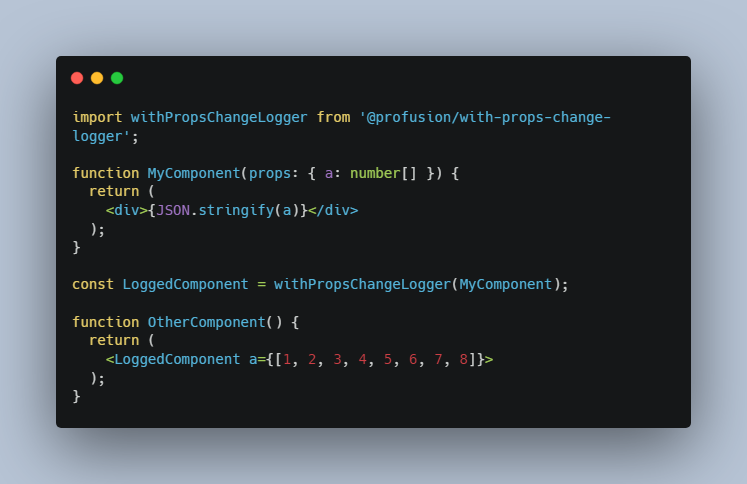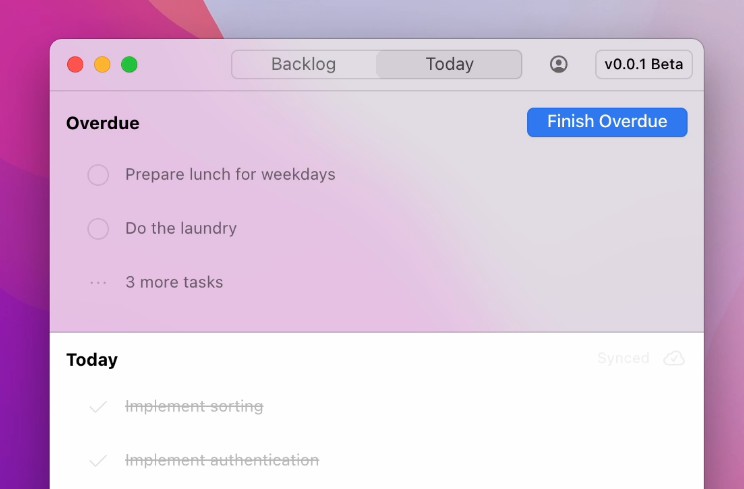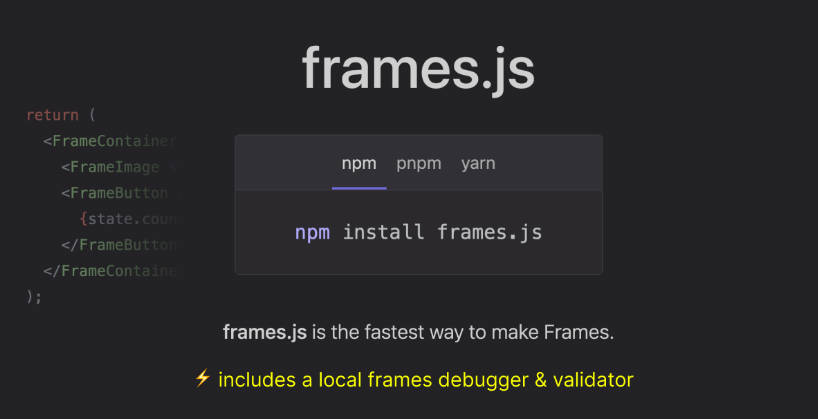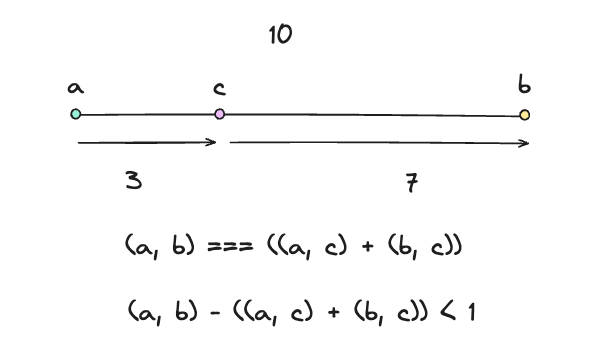Log Changed Properties in a React Component
This HOC (High Order Component) will wrap an existing class or function component and track properties that changed.
This is useful if you’re building a memoized component but it keeps rendering and you want to know the property that is causing that.
It’s meant to be used during development, production builds should remove it.
Example
import withPropsChangeLogger from '@profusion/with-props-change-logger';
function MyComponent(props: { a: number[] }) {
return (
<div>{JSON.stringify(a)}</div>
);
}
const LoggedComponent = withPropsChangeLogger(MyComponent);
function OtherComponent() {
return (
<LoggedComponent a={[1, 2, 3, 4, 5, 6, 7, 8]}>
);
}
When changed (say from [1234] to [1,2,3,4,5,6,7,8]), produces:
PROP CHANGED: SimpleComponent a from:
[1234]
to:
[1,2,3,4,5,6,7,8]
PROP RE-RENDERED DUE PROPS: SimpleComponent
NOTE: objects (including arrays) and functions are compared just
like React does, using a shallow comparison! It doesn’t matter if
the properties, array elements or the function body are the same, if
the instance is different, they will be logged.
Be sure to keep it stable (ie: using the old instances) with
useMemo(), useRef() or useCallback().
Verbosity
If you find the amount of information too verbose, you may want to
provide verbose: false and it will show only the typeof result, such
as:
const LoggedComponent = withPropsChangeLogger(MyComponent, {
verbose: false,
});
Produces:
PROP CHANGED: SimpleComponent a from: object to: object
PROP RE-RENDERED DUE PROPS: SimpleComponent





